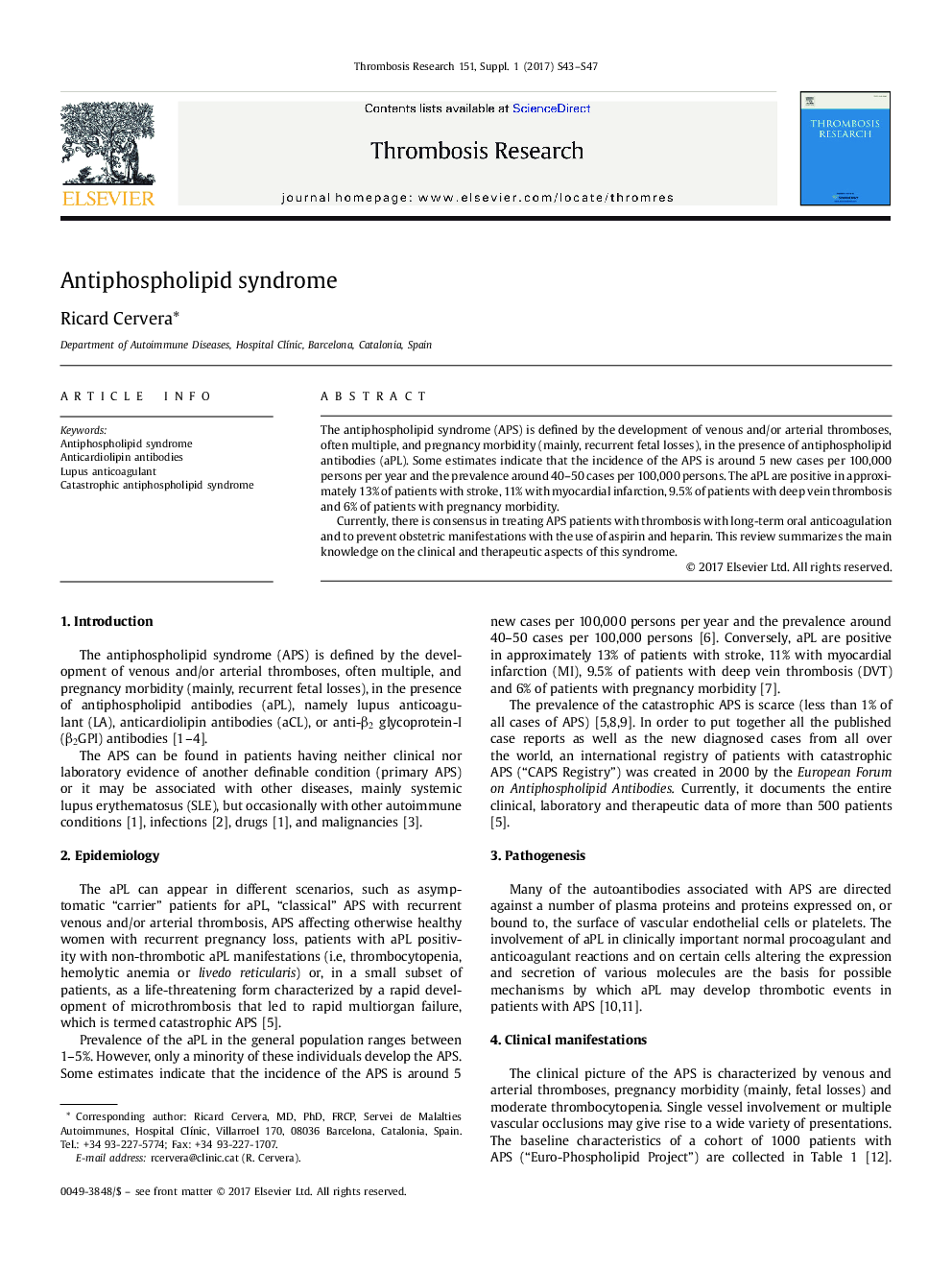| Article ID | Journal | Published Year | Pages | File Type |
|---|---|---|---|---|
| 5622071 | Thrombosis Research | 2017 | 5 Pages |
ABSTRACTThe antiphospholipid syndrome (APS) is defined by the development of venous and/or arterial thromboses, often multiple, and pregnancy morbidity (mainly, recurrent fetal losses), in the presence of antiphospholipid antibodies (aPL). Some estimates indicate that the incidence of the APS is around 5 new cases per 100,000 persons per year and the prevalence around 40-50 cases per 100,000 persons. The aPL are positive in approximately 13% of patients with stroke, 11% with myocardial infarction, 9.5% of patients with deep vein thrombosis and 6% of patients with pregnancy morbidity.Currently, there is consensus in treating APS patients with thrombosis with long-term oral anticoagulation and to prevent obstetric manifestations with the use of aspirin and heparin. This review summarizes the main knowledge on the clinical and therapeutic aspects of this syndrome.
